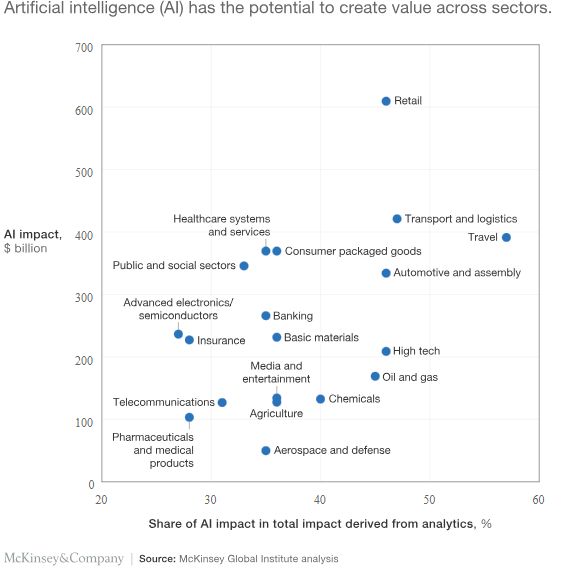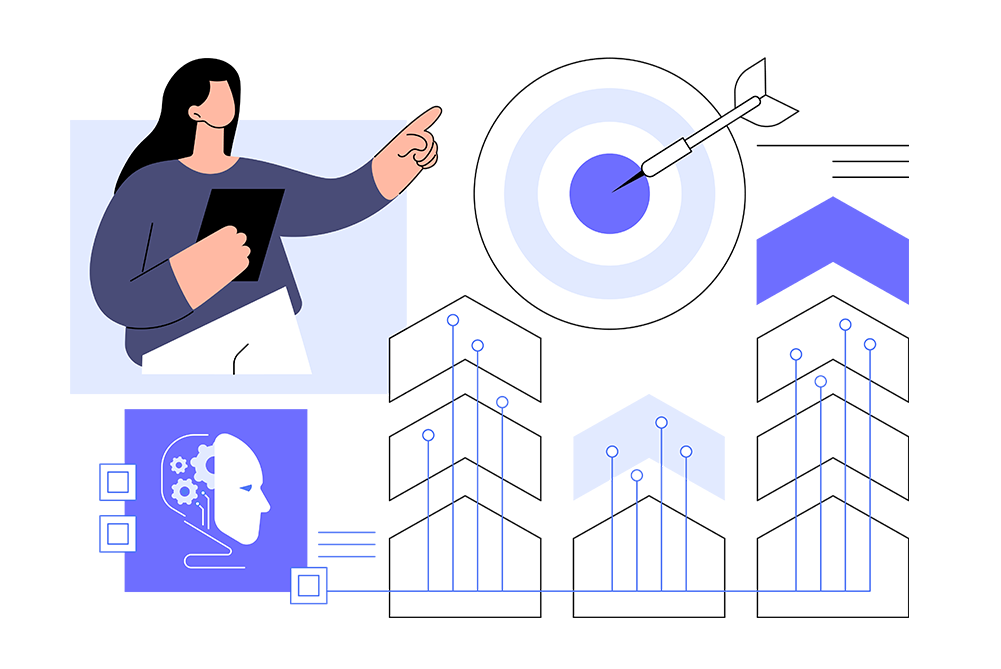In an era where digital transformation is not just a buzzword but a business imperative, Artificial Intelligence (AI) automation emerges as a game-changer. Reshaping traditional business operations, AI stands at the forefront of this revolution, offering innovative solutions that promise to redefine the landscape of how businesses operate.

AI automation is synonymous with efficiency. By integrating AI, businesses witness a dramatic reduction in manual intervention. Industries, from manufacturing to healthcare, have embraced AI-driven operational efficiency. For instance, in manufacturing, AI-powered robots perform tasks with precision, while in healthcare, AI algorithms assist in patient data management, streamlining administrative tasks.
AI’s prowess in data analysis and decision making is a cornerstone of modern business strategy. Its ability to sift through and interpret vast amounts of data far exceeds human capabilities, turning data into a goldmine of insights. In sectors like finance, AI algorithms analyze market trends and customer data, enabling businesses to make proactive, data-driven decisions. These insights are pivotal in tailoring products and services to customer needs, optimizing marketing strategies, and identifying new market opportunities. The result is a more agile, informed, and competitive business that can anticipate market shifts and respond with precision.
AI automation is a vital catalyst for cost reduction and resource optimization in businesses. By automating routine and complex tasks, AI significantly reduces labor and operational costs. This efficiency is particularly evident in sectors like manufacturing, where AI streamlines production processes, and in customer service, where AI chatbots handle routine inquiries, freeing human resources for more complex issues. Additionally, AI’s predictive maintenance in industries like transportation and energy minimizes downtime and repair costs. The overall impact is a leaner, more efficient operational model, where resources are optimally utilized, and costs are strategically minimized, enhancing the profitability and sustainability of businesses.
Organizations that have embraced AI in customer service witness a significant increase in customer engagement. This enhanced interaction not only fosters opportunities for cross-selling and upselling but also effectively reduces the cost-to-serve. Specifically in the banking sector, a 2020 study by McKinsey estimates that AI technologies could yield up to $1 trillion in added value annually on a global scale. A considerable part of this value is attributed to the transformation of customer service through AI. By integrating AI into customer interactions, businesses are not only streamlining their service models but also unlocking new revenue streams and enhancing overall customer satisfaction.
As AI automation integrates into the workforce, its impact on employee productivity and satisfaction is profound and widespread. While nearly all occupations will experience some level of automation, current technologies suggest that only about 5 percent of occupations can be fully automated. However, a significant portion of tasks within 60 percent of all occupations, from welders to CEOs, are automatable, amounting to about 30 percent of activities. This automation will not replace these roles but will rather evolve them, as workers across the spectrum adapt to collaborating with rapidly advancing machines. This transformation leads to employees focusing on more complex and creative tasks, enhancing job satisfaction and productivity. The future of work thus lies not in replacing humans, but in empowering them through AI partnership, driving innovation and efficiency.
AI’s precision and consistency play a pivotal role in enhancing accuracy and reducing error rates in business operations. In fields like healthcare, AI algorithms assist in diagnostic procedures, significantly reducing the likelihood of misdiagnoses and enhancing patient care. In finance, AI-driven systems accurately process large volumes of transactions, minimizing the risk of errors that can lead to financial discrepancies. This accuracy is crucial in maintaining trust and reliability in sensitive sectors. By automating tasks that are prone to human error, AI not only ensures a higher level of accuracy but also contributes to overall operational efficiency, reliability, and quality control in business processes.
AI automation is a key driver in scaling and future-proofing businesses. Its scalability lies in its ability to adapt and manage increasing data and operational complexities without proportional increases in cost or resources. For example, in e-commerce, AI systems effortlessly handle surging online customer interactions and transactions, allowing businesses to expand without significant additional investment. Moreover, AI’s predictive analytics enable companies to anticipate and adapt to market changes, ensuring long-term relevance. By integrating AI, businesses not only streamline current operations but also equip themselves to evolve with technological advancements and changing market dynamics, securing their position in the future business landscape.
Incorporating AI into business strategies offers a distinct competitive advantage in today’s marketplace. AI-driven solutions enable companies to operate more efficiently, make data-informed decisions, and provide superior customer experiences, setting them apart from competitors. For instance, in retail, AI’s ability to personalize shopping experiences and predict trends helps businesses attract and retain customers more effectively. In logistics, AI optimizes routes and delivery schedules, enhancing service quality and efficiency. By leveraging AI, businesses not only streamline their operations but also demonstrate innovation and forward-thinking, qualities that resonate with modern consumers and position these companies as leaders in their respective industries.
Implementing AI in business comes with its set of challenges and considerations that require careful navigation. Key among these is ensuring data privacy and security, as AI systems often handle sensitive information. Businesses must adhere to stringent data protection regulations and ethical standards. Another challenge is the integration of AI with existing systems and workflows, which may require significant restructuring and staff training. Additionally, there’s the need for continuous monitoring and updating of AI algorithms to maintain accuracy and relevance. Addressing these challenges strategically is crucial for businesses to fully leverage AI’s potential while maintaining trust and compliance.

In the rapidly advancing field of artificial intelligence (AI), efficiency often rivals effectiveness in importance. Large language models (LLMs) like…

Conversational AI is rapidly transforming how businesses interact with customers and streamline internal operations. From intelligent chatbots to virtual assistants,…

The Imperative for Accessible Educational Content In the wake of global educational shifts, the imperative for accessible educational content has…